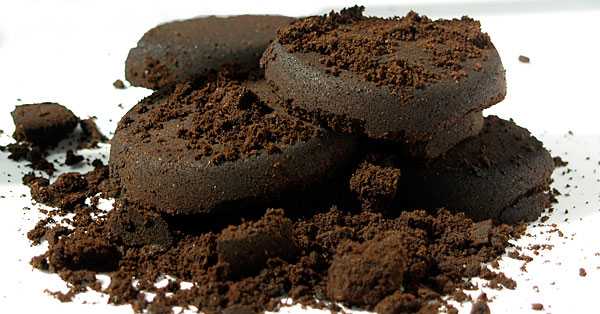MILAN – Demand for portable energy storage is growing with rising demand for products such as electric cars. Supercapacitors supply a higher power density and longer cycle life than a conventional battery but require porous carbon in their manufacture. A new study presents a method to create large amounts of carbon — suitable for supercapacitor manufacture — from an abundant, low-cost source: used coffee grounds.
High-value, porous carbon materials can form the basis of ‘supercapacitors’, energy storage devices with high power density, rapid energy discharge and long lifetimes. Creating porous carbon materials from biowaste is an area of current research focus; however, finding a material that is abundant, low-cost and naturally porous has remained elusive, and many biowastes yield a low amount of carbon product.
Identifying a biowaste that already has a porous structure would enable the carbon to be more easily penetrated and processed into the form of a supercapacitor electrode (the electrically conductive conduit by which current enters or leaves a system). The researchers were inspired to investigate coffee grounds as they are abundant — more than five million tons of coffee is produced annually — and have a porous structure.
Within the EU, biowaste is the single largest component of municipal waste (34%), and recycling this waste is key to meet the EU target of recycling 65% of urban waste by 2035. To achieve the best environmental outcome, the processing of the municipal waste stream should follow the waste hierarchy (the priorities which shape waste policy and managing waste: prevention, reuse, recycling, recovery and, finally, disposal — the least preferred option). For example, composting and anaerobic digestion — the latter producing a biogas and a digestate for use as a fertiliser — are regarded as a recycling operation by EU waste legislation.
Bio-waste can also be used to recover energy, in which case it cannot be included in the amount of municipal waste towards achieving the EU recycling target (as stipulated in the recycling definition set out in Directive 2008/98/EC on waste). The use of coffee grounds to produce carbon for supercapacitors could not only aid energy storage applications, but also result in a significant reduction in municipal waste.
The researchers conducted a small-scale, pilot method, in which they first synthesised mesoporous carbon (containing pores with diameters between 2–50 nanometer (nm)) from the coffee grounds, and then produced hierarchical porous carbon (with a combination of pores of different sizes) as an electrode material used in a high-energy storage system.Mesoporous carbon was produced from dried waste coffee grounds, which had a catalyst added to them before being heated in a furnace. An alkali was added to this carbon with further heating to create the final hierarchical porous carbon product for use as an electrode material. The thermal stability, surface elemental composition and porosity of the carbon product were analysed.
The resulting electrodes were tested in two- and three-electrode systems, and their energy/power density was recorded. A high yield of 42.5% of carbon was produced in the first step. The carbon was porous and had a high surface area and a large pore volume — beneficial features that offer a high charge storage capacity and fast ion diffusion rate. In three-electrode system, the carbon electrode had a high ability to store electric charge (440 Faraday per gram (F g-1)), higher than many other biowaste-derived porous carbons.
In the two-electrode system, the carbon electrode had an exceptional ‘rate capability’ (81%) — or the ability to maintain charge storage capacity at fast charge–discharge conditions. It also had a high energy density, similar to, or in excess of, most other biowaste-derived carbon materials. This study shows that coffee biowaste can be turned into high yields of porous carbon via a cost-effective two-stage process, with the resulting product suitable for use in a high-energy ‘supercapacitor’.
The researchers suggest that this combined method could be applied to biowaste materials other than coffee, enabling fabrication of many promising carbon materials with exciting applications in the field of energy storage. Further research on the commercialisation of this technology — based on a marketplace-cost analysis — would identify the potential for scale-up and deployment.
















